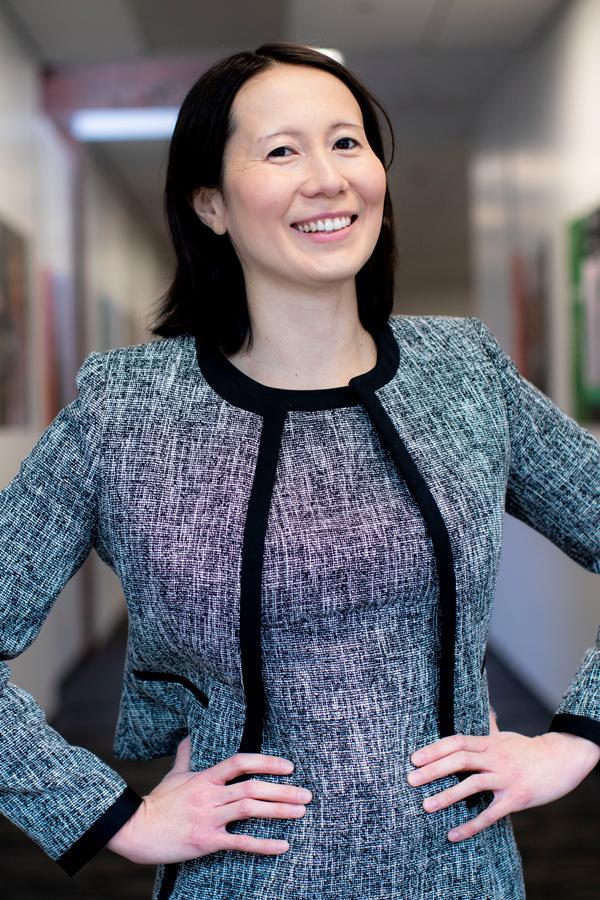Marketing professorNailya Ordabayeva has long been interested in the role social and economic hierarchies play in consumption behaviors.
 Tuck professor Nailya Ordabayeva teaches the core marketing course in the Tuck MBA program. She also teaches Marketing Principles for Creating Value and Building Your Personal Brand in custom Tuck Executive Education programs for organizations.
Tuck professor Nailya Ordabayeva teaches the core marketing course in the Tuck MBA program. She also teaches Marketing Principles for Creating Value and Building Your Personal Brand in custom Tuck Executive Education programs for organizations.
She admits it probably goes back to her childhood in Kazakhstan, where the fall of the Soviet Union created new inequalities. Kids in my school were suddenly wearing fancy jeans and sneakers,
she remembers. Thirty years later, that initial observation and curiosity has fueled a robust body of academic research on how social and sensory perceptions influence consumers’ purchase decisions. One of the most interesting veins of this research studies the link between consumers’ politics and their purchase patterns and satisfaction. As you might expect, conservatives and liberals do differ in what they buy and how they feel about it, but those differences aren’t always intuitive.
Conservatives Want to be Better, Liberals Want to be Different.
One of the most powerful drivers of consumer behavior is consumers’ desire to differentiate themselves from others in the marketplace. In a 2018 paper in the Journal of Consumer Research, Ordabayeva found that conservatives and liberals accomplish this differentiation in, well, different ways.
As she shows in “Better or Different? How Political Ideology Shapes Preferences for Differentiation in the Social Hierarchy,” conservatives choose to differentiate themselves by buying things that signal they are better than others, such as luxury items and expensive brands. Conservatives really believe in the legitimacy of vertical hierarchies,
Ordabayeva says. They believe that if you work hard, you can afford these more expensive, better products, and that these items become a signal of your virtue, of your good qualities.
Conservatives really believe in the legitimacy of vertical hierarchies. They believe that if you work hard, you can afford these more expensive, better products, and that these items become a signal of your virtue, of your good qualities.
—Nailya Ordabayeva
Liberals, however, tend to reject the legitimacy of vertical hierarchies. They believe there’s more randomness that influences peoples’ hierarchical positions. Thus, when liberals are presented with an opportunity to stand out in the marketplace, they choose products that are unique and different, perhaps in color or design.
One key takeaway from this research, Ordabayeva explains, is that vertically differentiating products might do better in conservative states and when advertised in conservative outlets, such as the Wall Street Journal, while horizontally differentiating products might be more appealing in liberal states and when advertised in liberal outlets, such as the New York Times.
… But, Conservatives are Also More Open to Inferior Products in Some Contexts
Although conservatives clearly prefer expensive goods that signal their status and virtue, that preference weakens when they are purchasing utilitarian and non-conspicuous items such as produce and household goods that do not clearly signal one’s social status or individual qualities to others. In fact, in this context, conservatives are more open to inferior products than are liberals. That’s the surprising finding from Ordabayeva’s forthcoming paper in the Journal of Consumer Research, “How Political Ideology Shapes Preferences For Observably Inferior Products.”
The mental mechanism at work here is what Ordabayeva calls “compensatory reasoning”: conservatives have a stronger belief (versus liberals) that there’s a natural balance in things, whereby positive attributes offset negative ones. We show that conservatives believe that if there’s a weakness in a product,
Ordabayeva says, then there must be something that balances it out. Maybe something ugly or slightly outdated performs well or has some strengths along other dimensions that are not so visible.
Conservatives Have Higher Satisfaction
In “How Political Identity Shapes Customer Satisfaction,” published in 2022 in the Journal of Marketing, Ordabayeva and her coauthors found that conservatives are consistently more satisfied than liberals with the products and services they purchase and consume.
Behind this satisfaction is a foundational belief by conservatives in the idea of free will. Compared to liberals, conservatives more strongly believe they are free to exercise autonomy and to choose the products and services they consume. This leads conservatives to believe that their choices are sound and, as a result, to attribute more positive qualities to the things they personally chose and bought.
Importantly, if you take away free choice, or there’s no choice available, we don’t observe this political difference in satisfaction,
Ordabayeva reports. One implication that follows is somewhat counterintuitive: in a market with lots of competition, satisfaction scores from conservatives will probably be higher.
Tuck School of Business
Please visit the firm link to site





